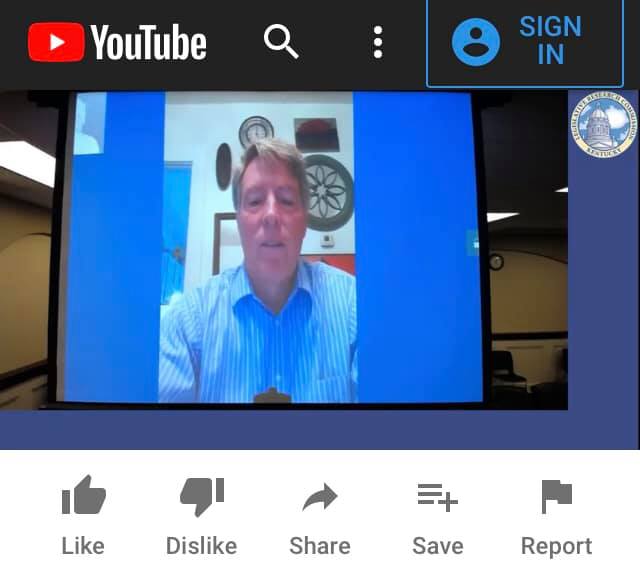
At 8:20 a.m., on June 25, this tweet appeared on the KET Public Affairs Twitter account:
"Today's legislative meetings will not be broadcast or live streamed. Video recordings of the meetings will be available on the LRC's YouTube channel within one to two business days."
This, like other serious violations of Kentucky's open government laws, might have gone unchallenged.
Citizens, as well as access advocates have learned to pick their battles.
But it is worthy of note when the Kentucky General Assembly ignores a law it enacted in March, 2020, and that it expects all other Kentucky agencies to strictly observe.
"Having watched as public agencies across the Commonwealth endeavored to comply with those sections of SB 150 — the Coronavirus Relief Bill — relating to public meetings, the Kentucky Open Government Coalition found this blatant disregard for the law *by lawmakers* deeply offensive.
https://apps.legislature.ky.gov/record/20RS/sb150.html
Under less than ideal conditions, and in many cases with far fewer resources, Kentucky agencies have accepted the challenge to conduct the public's business by live video teleconference, while protecting public health, since SB 150 was signed into law on March 30.
The Senate Majority, on the other hand, chose to ignore the legal options available to it sometime on or before June 25.
Under SB 150, those three legal options were: 1) in-person meetings of the legislative committees; 2) live video teleconferenced meeting of the legislative committees; or 3) live audio teleconferenced meetings of the legislative committees (if video teleconferencing capabilities were unavailable).
Instead, the Senate Majority chose a fourth, legally unauthorized, option: Record the virtual meetings of remote interim committee members and post the recordings at a later date.
Only when objections were raised on Twitter — by the Coalition and the media — and some well-placed calls were made by members of the Democratic Caucus, did the Senate Majority relent, cancelling the previously scheduled 10 am meeting of the Interim Joint Committee on Veterans, Military Affairs, and scrambling to utilize the available resources to live video teleconference the noon Capitol Oversight and Bond meeting on its YouTube Channel.
The Senate Majority managed to air the 1 pm Health, Welfare, and Family Services Committee and the 3 pm Medicaid Oversight and Advisory Committee on its regular KET channels.
But again the Coalition is prompted to ask: When did the legislature abandon any pretense of compliance with the open meetings laws and when did Kentuckians abandon any expectation of compliance?
Coalition director Amye Bensenhaver asked this question in a January 2019 Courier Journal op-ed in which she identified multiple open meetings violations committed by lawmakers at the commencement of the Regular Session.
https://www.courier-journal.com/story/opinion/contributors/2019/01/14/k…
She asked the question in 2017 when the House of Representatives conducted a closed meeting of the full body —which it cynically described
as a majority caucus meeting to which the minority caucus was invited — to discuss a newly released pension report outside the "glare" of public scrutiny. Only one House member, former Rep. Jim Wayne, D-Louisville, refused to attend, citing the public's rights under the open meetings law.
That overt violation of the open meetings law was successfully challenged in the courts.
https://amp.courier-journal.com/amp/613255002
No one argued, then or now, that the open meetings law is inapplicable to the General Assembly. Yet formal legal challenges to its noncompliance have been few and far between.
And so we ask: why do we permit the General Assembly to continue to make laws that other agencies must abide by but it refuses to abide by itself?
That's a puzzle.


